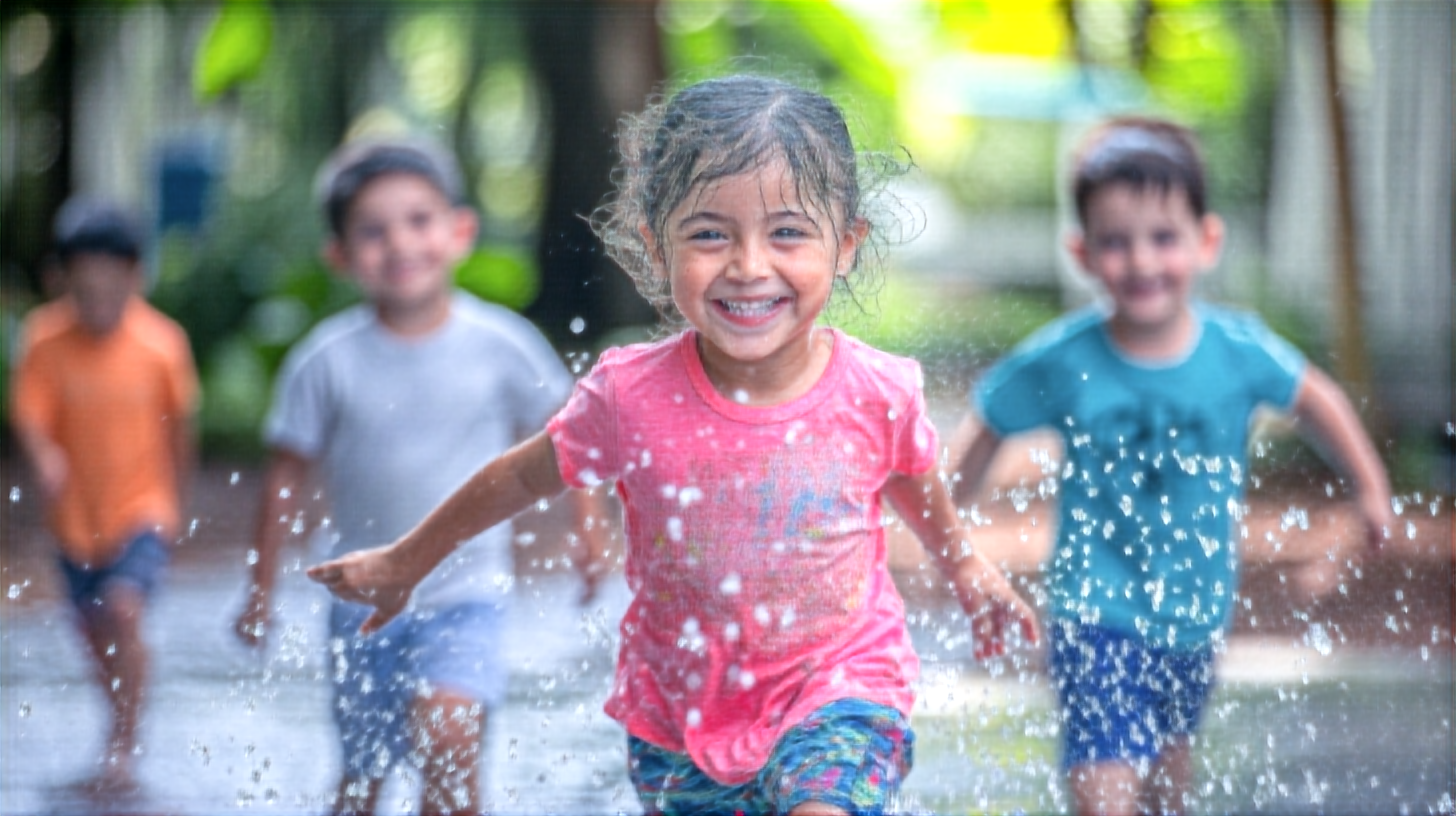Play-based learning is an educational approach that emphasizes the importance of play in children’s development and learning. At Open Doors Preschool in Estero, FL, this method is at the core of our teaching philosophy. By focusing on hands-on learning and active engagement, we strive to create an environment where children can thrive and develop essential skills for their future. Through this approach, we aim to foster creativity, critical thinking, and social interaction, laying a strong foundation for lifelong learning.
What is Play-Based Learning?
Play-based learning is an educational strategy that uses play as the primary mode of learning. It is grounded in the belief that children learn best when they are engaged in activities that are fun, meaningful, and relevant to their interests. This approach encourages children to explore, experiment, and discover new things at their own pace. Additionally, play-based learning allows children to take ownership of their learning experiences, fostering independence and self-regulation.
Key Principles of Play-Based Learning
There are several key principles that underpin play-based learning:
- Child-Centered: The learning process is guided by the child’s interests and curiosity. This principle ensures that each child is engaged and motivated, leading to deeper and more meaningful learning experiences.
- Active Engagement: Children are actively involved in their learning through hands-on activities. This engagement helps to reinforce concepts and skills, making learning more effective and enjoyable.
- Social Interaction: Play-based learning promotes social skills through group activities and collaborative play. Children learn to communicate, share, and work together, which are essential skills for their future.
- Developmentally Appropriate: Activities are tailored to the child’s age and developmental stage. This ensures that the challenges are appropriate and achievable, promoting confidence and a sense of accomplishment.

Benefits of Play-Based Learning
The play-based learning approach offers numerous benefits for young children. These advantages span across cognitive, social, emotional, and physical development, providing a holistic approach to education.
Cognitive Development
Play-based learning stimulates cognitive development by encouraging children to think critically, solve problems, and make decisions. Through play, children learn to:
- Recognize patterns and sequences, which are foundational skills for mathematics and logic.
- Develop memory and recall skills, enhancing their ability to retain and use information.
- Understand cause-and-effect relationships, helping them to comprehend the world around them.
- Enhance language and communication skills, which are crucial for reading and writing development.
Social and Emotional Development
Play provides a natural context for children to develop social and emotional skills. During play, children learn to:
- Share and take turns, which are essential for building relationships.
- Resolve conflicts and negotiate, helping them to develop empathy and problem-solving skills.
- Build self-esteem and confidence as they master new skills and overcome challenges.
- Express their feelings and understand others’ emotions, fostering emotional intelligence.
Physical Development
Hands-on activities in play-based learning promote physical development by helping children improve their fine and gross motor skills. Activities such as climbing, running, drawing, and building enhance:
- Coordination and balance, which are important for overall physical health.
- Hand-eye coordination, essential for tasks such as writing and sports.
- Muscle strength and control, contributing to physical fitness.
- Overall physical health and well-being, laying the foundation for an active lifestyle.
The Role of Teachers in Play-Based Learning
At Open Doors Preschool, our teachers play a crucial role in facilitating play-based learning. They create an environment that encourages exploration and discovery, while also providing guidance and support. Teachers act as facilitators, guiding children through their learning journeys and helping them to make connections between play and academic concepts.
Creating a Stimulating Environment
Teachers design the classroom to be a rich, stimulating environment filled with a variety of materials and resources that inspire curiosity and creativity. This includes:
- Art supplies that encourage self-expression and creativity.
- Building blocks and construction toys that promote problem-solving and spatial awareness.
- Books and storytelling props that enhance language and literacy skills.
- Outdoor play equipment that supports physical development and exploration.
Observing and Interacting
Teachers observe children during play to understand their interests and developmental needs. They interact with children by:
- Asking open-ended questions that stimulate thinking and conversation.
- Providing new materials or challenges to extend learning opportunities.
- Encouraging collaboration and communication among peers.
- Offering gentle guidance and support to help children navigate challenges.
Integrating Learning Objectives
While play is the primary mode of learning, teachers also integrate specific learning objectives into play activities. This ensures that children are developing essential skills in areas such as:
- Literacy and numeracy, through activities like storytelling and counting games.
- Science and nature, by exploring the natural world and conducting simple experiments.
- Social studies, by role-playing different community roles and scenarios.
- Physical education, through active play and movement-based activities.
Examples of Play-Based Learning Activities
At Open Doors Preschool, we offer a wide range of play-based learning activities that cater to different interests and developmental stages. These activities are designed to be engaging, educational, and fun.
Sensory Play
Sensory play involves activities that stimulate a child’s senses, such as touch, smell, taste, sight, and hearing. Examples include:
- Playing with sand, water, or clay, which helps develop fine motor skills and sensory awareness.
- Exploring different textures and materials, such as fabric, foam, and natural objects.
- Engaging in sensory bins with themed objects, which can enhance language development and cognitive skills.
Dramatic Play
Dramatic play allows children to role-play and act out different scenarios. This helps them develop social and emotional skills, as well as creativity and imagination. Examples include:
- Pretend play with kitchen sets, costumes, and puppets, fostering creativity and social interaction.
- Setting up a mini grocery store or doctor’s office, promoting practical life skills and problem-solving.
- Acting out stories and fairy tales, enhancing language skills and narrative understanding.
Outdoor Play
Outdoor play is essential for physical development and offers opportunities for exploration and adventure. Examples include:
- Climbing on playground equipment, which builds strength and coordination.
- Running, jumping, and playing games, promoting cardiovascular health and social interaction.
- Exploring nature and observing wildlife, fostering a sense of curiosity and environmental awareness.
Art and Craft Activities
Art and craft activities encourage creativity and fine motor skills. Examples include:
- Drawing, painting, and coloring, which help develop hand-eye coordination and self-expression.
- Making collages and sculptures, promoting spatial awareness and creativity.
- Crafting with natural materials like leaves and sticks, connecting children with nature and enhancing fine motor skills.

Parental Involvement in Play-Based Learning
Parental involvement is a key component of play-based learning. At Open Doors Preschool, we encourage parents to participate in their child’s learning journey by:
- Engaging in play activities at home, reinforcing the skills and concepts learned at school.
- Attending school events and workshops, fostering a sense of community and collaboration.
- Communicating regularly with teachers, ensuring that parents are informed and involved in their child’s progress.
- Supporting their child’s interests and curiosity, providing additional learning opportunities outside of school.
Tips for Parents
Here are some tips for parents to support play-based learning at home:
- Provide a Variety of Materials: Offer a range of toys, books, and materials that stimulate different areas of development. This variety helps keep children engaged and supports a well-rounded development.
- Create a Safe Play Space: Ensure there is a designated area for play that is safe and free from hazards. A safe environment allows children to explore and play without unnecessary restrictions.
- Encourage Exploration: Allow your child to explore and experiment without strict rules or limitations. This freedom fosters creativity and critical thinking.
- Join in the Fun: Play with your child and participate in their activities, but also give them space to play independently. This balance helps to develop social skills while also promoting independence.
Discover the Power of Play-Based Learning at Open Doors Preschool!
Play-based learning is a powerful approach that fosters holistic development in young children. At Open Doors Preschool in Estero, FL, we are committed to creating a nurturing environment where children can learn, grow, and thrive through play. By emphasizing hands-on learning and active engagement, we help children develop the essential skills they need for a bright future.
For more information about our play-based learning programs, feel free to visit our website or contact us directly. We look forward to welcoming you and your child to our preschool community.

